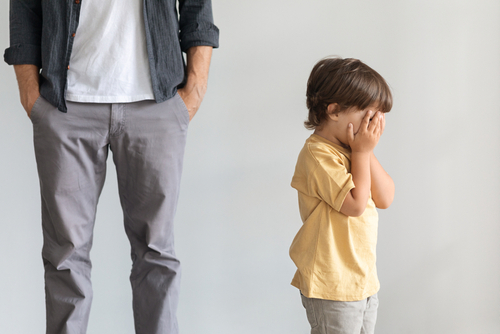It is fair to say that most people want meaningful connections, human touch, and a sense of belonging. From the moment we gain consciousness and, quite possibly, the very moment we’re born, we set ourselves on the journey toward belonging in a deep meaningful way..
However, that journey is seldom easy and straightforward. Many of us are born into circumstances beyond our control, sometimes in our family systems and sometimes in the environments surrounding us.
As children, we are fragile and impressionable, seeking love and safety from the world that surrounds us. When that world comes crashing down upon us, shattering our innocence and sense of security, it hurts.
Sometimes, it hurts so much that our not-yet-fully developed brain reacts in the only way it knows how – by instinctively developing coping mechanisms to help us thread the storm. However, in doing so, it also inadvertently shapes our beliefs, thoughts, and behaviors in a way that echoes through time and well into our adulthood.
One of those strategies is codependency, a complex emotional pattern that can silently infiltrate our lives, erode our sense of self-worth and distort the way we relate to others and ourselves. It manifests as an all-consuming desire to please others, to sacrifice our own needs for the sake of external validation, and to see our worth through the eyes of those we love.
By peering into the past, we can understand how the trauma response has intertwined with our sense of self and formed unhealthy patterns that have influenced the way we connect with others and, in doing so, find a way of overcoming codependency.
What Is Considered Trauma Response?
Trauma response refers to the psychological and physiological reactions that individuals may experience when exposed to highly unpleasant, disquieting, or horrifying events or ongoing situations.
These responses can manifest in a wide variety of ways, affecting emotional, cognitive, and behavioral patterns, for example:
- Emotionally, individuals may experience heightened levels of anger, fear, anxiety, sadness, or a sense of numbness and detachment. They may also struggle with intense feelings of shame, guilt, or self-blame, erroneously internalizing the traumatic event as a reflection of their own worth.
- Cognitively, manifestation can include intrusive thoughts, flashbacks, nightmares, or difficulties with concentration and memory. These intrusive memories can retrigger the emotional and physiological responses associated with the original trauma, causing distress and severely hindering daily functioning.
- Behaviorally, trauma response can lead to a range of coping mechanisms. Some individuals may exhibit hypervigilance, constantly scanning their environment for potential threats. Others may engage in avoidance behaviors, seeking to escape reminders of the trauma. Substance abuse, self-harm, or engaging in risky behaviors may also be used as maladaptive coping strategies to numb emotional pain or regain a semblance of control.
It is important to note that the manifestations of trauma response can vary widely from person to person, influenced by factors such as the type, severity, and duration of the traumatic experiences.
Can Childhood Trauma Lead To Codependency?
The origins of trauma responses can be traced back to experiences of highly distressing events or ongoing challenges. These experiences can stem from various sources, including instances of abuse, neglect, accidents, natural disasters, or witnessing acts of violence.

However, if childhood trauma is experienced within the family or close relationship, it can have even more profound and lasting effects on an individual’s well-being. Children who grow up in environments where their emotional and physical needs are consistently unmet may (and often do) develop coping mechanisms to survive the trauma.
AND, a need to fix, control, and make others “ok” is often at the forefront of their communication style.
Some of these strategies can include excessive caretaking, seeking validation through others, and developing hyper-vigilance to prevent further harm. These patterns, while initially adaptive, can persist into adulthood and contribute to the development of codependent behaviors.
What Is The Connection Between Trauma Response And Codependency?
After everything said, spotting the common denominator between codependency and trauma response becomes almost too easy. It lies in the deep seethed emotional wounds and coping strategies adopted as a response to them.
As a direct consequence, individuals who have experienced trauma may start internalizing beliefs such as:
- Feeling responsible for other people’s emotions;
- Fear of abandonment;
- Need to control situations to prevent harm.
What’s more, codependency often arises as a way to recreate habitual dynamics from childhood and perpetuate a sense of familiarity and control.
This is why individuals with codependent tendencies often find themselves repeatedly attracted to relationships where they can fulfill “their” caretaking role or seek validation for others, even at the expense of their own well-being.
Lastly, trauma responses (e.g. hypervigilance, dissociation, etc.) can obscure healthy boundaries and hinder self-care practices, causing the person to struggle to recognize their own needs and prioritize their well-being, leading to further entrenchment of codependency as a default operating state.
Let’s end this on a positive note, though. Although this behavior is a critical issue that can negatively impacts a person’s life, overcoming codependency and full recovery are more than possible!
Can Codependency Be Cured?
It is a common misconception that codependency is a disease, much like addiction since it shares so many traits with it. However, this is not the case. Codependency is a learned behavior. As such, the only “cure” for it is to let go of established patterns and adopt new, healthier ones.
This can be done in many different ways, from practicing self-awareness and building up authenticity to engaging in workshops that teach how to fix a codependent relationship. Still, considering how deeply rooted this behavior can be, it is reasonable to conclude that codependency recovery is a gradual process that takes time. As such, it is best to approach it with the help and guidance of a trained professional.

Embark On A Transformative Journey Toward Self-Discovery With PIVOT’s Codependency Recovery
At PIVOT, we understand how overwhelming it can be to decide to set foot on the road of recovery from codependency. However, we also know that within you is the power to establish healthy boundaries, reclaim your sense of self, and foster authentic connections with others. So, let us help you discover that power!
Join us at our Glass House Retreat, where our team of experienced and compassionate coaches offers a wealth of knowledge, practical tools, and invaluable experiences that will guide you on your journey to freedom and emotional well-being. Reach out to us today and head into a better life tomorrow!

